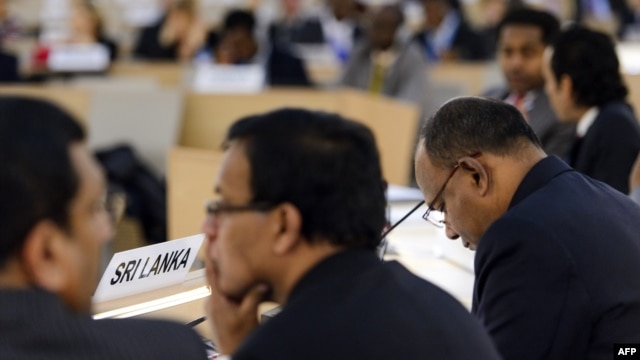Sri Lanka's Rights Record Questioned
 A human rights watchdog says Sri Lanka's promises on human rights should no longer be accepted by the international community.
A human rights watchdog says Sri Lanka's promises on human rights should no longer be accepted by the international community.Amnesty International said in a statement Colombo's "continued denial" of Sri Lanka's human rights crisis, as well as the need for independent investigations into new alleged human rights violations and past war crimes, was highlighted Thursday at the United Nations Periodic Review in Geneva.
Yolanda Foster, Amnesty's Sri Lanka expert, said a number of countries during the review questioned the South Asian nation's "lack of progress in ending human rights violations."
Amnesty International said Sri Lanka's crackdown on dissent has extended to lawyers and members of the judiciary who speak out against abuses of power.
The U.N. examines the the human rights environment in each member state every four and a half years.
Foster said there has been "virtually no progress" on the commitments Sri Lanka made four years ago to end arbitrary detentions.
Amnesty International said a "culture of impunity" persists in Sri Lanka because "the government has not investigated, prosecuted or punished" most of the perpetrators of human rights violations.
Some information for this report was provided by AFP.
